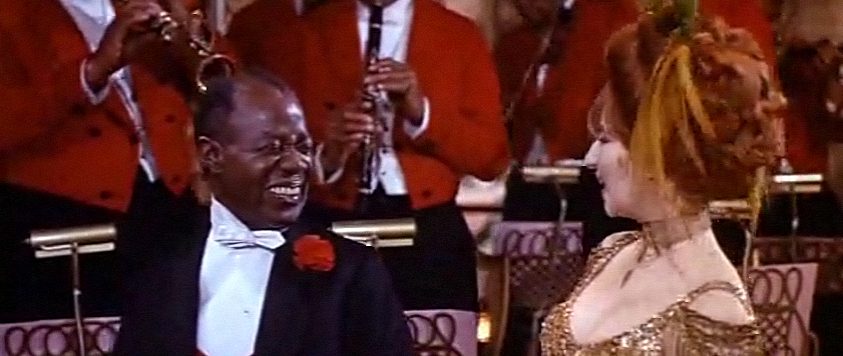Jerry Herman, Conjurer of Dolly, Mame and Albin
By • December 30, 2019 0 723

Jerry Herman, composer and creator of grand and enduring Broadway musicals, died in a Miami hospital on Dec. 26 of a pulmonary ailment.
Herman, 88, the recipient of a Tony Award for Lifetime Achievement and a Kennedy Center Honor, was accused by some critics of being something less than intellectually hefty. This was probably because he had his biggest hits during the heyday of Stephen Sondheim, whose musicals — “Sunday in the Park with George,” “Passion” and “Assassins,” among them — were not always accessible in the crowd-pleasing sense of the word, though unforgettable in their own way.
At some point or another, Herman probably chuckled with good nature on many stately walks to the bank, surrounded by the echoes of millions of theatergoers who saw his work around the world.
He himself admitted that he was first and foremost an entertainer, that his audience was everyone, that he wanted to make people feel good — all of which was true over and over and time and time again.
You could say, however, that he was being a little overly modest, that he was selling himself short. He was in every sense of the words a pathfinder, an originalist, just as Cole Porter, Gershwin, Rodgers and Hammerstein, even Lerner and Loewe were.
Think about it. Who else but Jerry Herman managed to put on the stage the flesh and blood personas, dressed like brassy Roman candles, to belt out songs that have become standards, that will, on any given night, always be sung somewhere by someone? Who else but Herman managed to conjure the essence or facsimile of the diva, the grandest of grand females, in “Hello, Dolly!” and “Mame” and “La Cage aux Folles”?
The source material was not his own. “Hello, Dolly!” morphed from two plays by Thornton Wilder: “The Merchant of Yonkers,” revised as “The Matchmaker.” “Mame” was a theatrical comedy, then a film called “Auntie Mame.” “La Cage” was a comedic French film, which would, in the end, become an American movie classic called “The Bird Cage.”
But in Herman’s hands and musical imagination, these three became unforgettable musicals, with a central role ready-made for original performers of outsized and original gifts, guaranteeing them stage immortality.
This was especially true for Dolly Levi, the indefatigable matchmaker from Yonkers, who became the blazing sun of Herman’s vision in “Hello, Dolly!” — impersonated, acted and sung, a woman if you saw and heard her on stage or screen who will occupy the attic of your mind until the last breath you take.
No doubt hundreds of performers and actresses have played Dolly all over the world, and there may not be an “ultimate” Dolly, but there was a first Dolly. That was Carol Channing, with a persona that was in command, sweet and glittering, and a voice that seemed made up equally of charcoal and maple syrup.
Herman’s musicals — there were 10 in all — almost always featured at least one song that was anthem-like: the title songs of “Dolly” and “Mame” and “I Am What I Am” in “La Cage,” sung by Albin, the shy member of a gay couple raising a son (shy until he put on blindingly glamorous women’s clothes). “La Cage” was the first big Broadway musical hit with a gay theme, hitting the stage at the height of the AIDS crisis.
If the music seemed old-fashioned in the sense that you yourself could remember it and sing it around a piano or marching with thousands of other people, it was also revolutionary in its memorability.
Barbra Streisand, of course, seemed to take over the part of Dolly in the movie version. It’s hard to remember who else was in it — other than Louis Armstrong, with his indelible voice, welcoming Dolly back where she belonged.
Essentially, Herman and the women and characters he created belonged on the stage, reinventing the invention that was his work and life. The festive nature, the costumes, the forever songs, they formed a kind of passing parade, which happens also to be part of a Herman song from “Dolly.”
When you went to a Jerry Herman show, you went to a family gathering, a party, a class reunion, an anniversary, an arrival. So, once more, as it may happen: Crowds of waiters. A parade. A chorus line. All singing, at the gate: “Hello, Jerry! Well, hello, Jerry …”

